Opinion
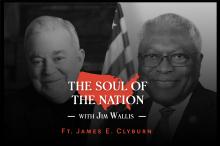
House Majority Whip James E. Clyburn speaks with Rev. Jim Wallis about voting rights ahead of one of the most important presidential elections in modern history.
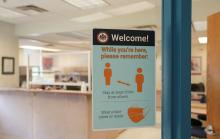
Hybrid model. Synchronous learning. Pandemic pod. These words have quickly become the new normal when parents talk about school this fall. Every school district is scrambling to figure out how to deliver quality instruction while keeping students, families, and educators safe from COVID-19. They face a dizzying array of conflicting choices and, maddeningly, there are no simple solutions. The entire schooling dilemma is like a proverbial house of cards: We gently pull out a single card and the entire creation collapses.

We live in the shadow of flags meant to forever hide us, to remind us we don’t belong.
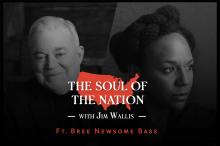
Activist and civil rights organizer Bree Newsome Bass speaks with Rev. Jim Wallis about the need for a racial reckoning.

The apostle Paul summarizes the practical implications of a Christ-like ethic toward others: “Do nothing from selfish ambition or conceit, but in humility count others more significant than yourselves. Let each of you look not only to his own interests, but also to the interests of others” (Philippians 2:3-4 ESV).

This year has been difficult beyond description for so many people. While the COVID-19 pandemic has understandably occupied front pages across the country and around the globe for much of the past six months, another destructive wave continues to fester, creating so much pain and grief: our national plague of gun violence, which claims 100 lives a day. Together, the two crises have become a toxic combination.

For many today, the Black freedom struggle has become a myth. Our ancestors are memorialized in their death while crucified in their life. For many, it has become a symbol of progress: a symbol of the progress of America, particularly white America, to finally “get it.” It is a powerful myth.
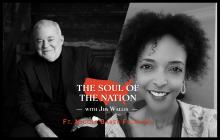
Dr. Nicole Baker Fulgham, founder and president of the Expectations Project and author of Educating All God's Children, speaks with Rev. Jim Wallis about what Christians can do to help improve public schools for kids in crisis, particularly amid COVID-19.
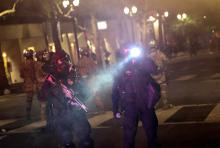
The writer, James Baldwin, stated in 1962, “It is, alas, the truth that to be an American writer today means mounting an unending attack on all that Americans believe themselves to hold sacred.” It is the truth that to be a person of faith in America today, is to recognize that America desires Jesus slogans over morally grounded Jesus-inspired action.

This morning President Trump posted the following unconscionable tweet regarding our upcoming election that dishonors Congressman Lewis’ legacy and poses a direct threat to our democracy:
With Universal Mail-In Voting (not Absentee Voting, which is good), 2020 will be the most INACCURATE & FRAUDULENT Election in history. It will be a great embarrassment to the USA. Delay the Election until people can properly, securely and safely vote???

As a shooting survivor who works to educate people about gun violence and advocate for gun reform in the United States, I have spent years trying to convince people that it is worth making personal sacrifices for the sake of the collective good. That’s how I knew that if surviving this pandemic was riding on the event that people would willingly choose to give up a small amount of personal freedom to protect someone else, we were already in a losing battle.
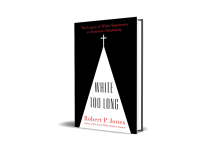
Every nonfiction book is personal, often arising from some faint but persistent insight, a kernel of awareness that blossoms into a story that demands to be told. White Too Long began with a growing consciousness of the abiding presence of white supremacy within the faith we white Christians have inherited and live within.

What remains for all who’ve hit rock bottom is the long road to healing.
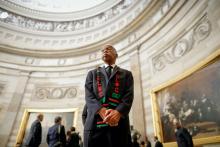
I spent many hours just looking at the Edmund Pettus Bridge. The words that kept coming to me were “courage” and “gratitude,” and the question that surfaced was: What bridge we will now have to cross?
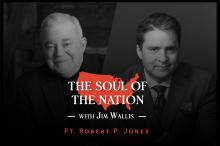
Pollster Robert P. Jones speaks with Rev. Jim Wallis about how white American Christianity and white supremacy collaborate throughout our nation's history.
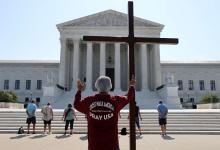
The Supreme Court recently issued a ruling that stripped the protections of anti-discrimination laws from thousands of teachers at religiously affiliated schools.
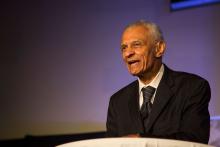
While researching C.T. Vivian’s life, I had the honor of sitting with Vivian for hours, hearing about his life and work. “This was truly a religious experience,” he said. “People need to know that.”

I spent a year collecting ethnographic data in a predominantly white, conservative, Christian K-12 school. It troubled me that my tax dollars were being used to support the kinds of teaching and discriminatory admissions practices I witnessed.
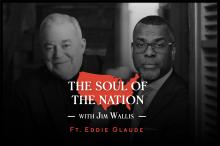
Dr. Eddie Glaude speaks with Rev. Jim Wallis about the need for a profound change in America that he calls the "The Third Founding."

Families are anxious to hear whether, when, and how schools will reopen. They can’t. And it’s because of a failure of leadership.